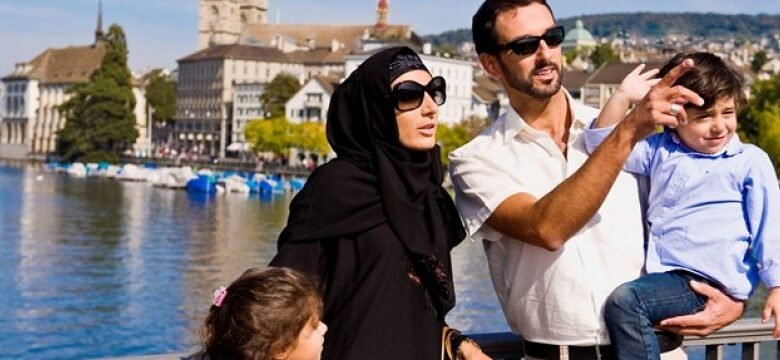What is Halal Tourism?
A Guide to the Growing Travel Trend for Muslim-Friendly Experiences

Introduction
As the global tourism industry evolves, there’s a growing emphasis on meeting the diverse needs of travelers. Halal tourism is a segment of the industry tailored specifically for Muslim travelers who seek experiences aligned with Islamic values and principles. This trend has led to the creation of unique travel services, accommodations, and attractions that cater to the lifestyle, dietary requirements, and religious practices of Muslims. Here’s a closer look at what Halal tourism is, what it entails, and why it’s becoming an essential part of the travel industry.
What is Halal Tourism?
Halal tourism refers to travel experiences that adhere to Islamic guidelines, making it easy for Muslim travelers to maintain their religious practices while exploring the world. This means offering services such as Halal-certified food, prayer facilities, alcohol-free environments, and culturally respectful activities. These features help Muslim tourists feel comfortable and accommodated, ensuring their travel experience is both enjoyable and respectful of their beliefs.
Key Elements of Halal Tourism
- Halal-Certified Food Options
- What It Means: Halal food adheres to Islamic dietary laws, meaning it is prepared in a way that is permissible under Islamic law. Halal tourism ensures access to Halal-certified restaurants, hotel dining options, and even in-flight meals.
- Why It’s Important: Food is a crucial aspect of travel, and Muslim tourists want to enjoy local cuisines that align with their dietary preferences.
- Prayer Facilities
- What It Means: Halal tourism often includes access to dedicated prayer spaces or information about nearby mosques and prayer rooms.
- Why It’s Important: Muslims pray five times a day, and having accessible prayer facilities allows them to fulfill this religious obligation conveniently.
- Alcohol-Free Environments
- What It Means: Many Halal hotels, resorts, and even airlines offer alcohol-free zones or ensure that all areas are alcohol-free to respect Muslim values.
- Why It’s Important: Alcohol consumption is prohibited in Islam, so having alcohol-free areas creates a comfortable and compliant environment for Muslim travelers.
- Gender-Segregated Facilities
- What It Means: Halal resorts and hotels often provide gender-segregated swimming pools, spas, and beaches, ensuring privacy and comfort for all guests.
- Why It’s Important: Many Muslims prefer gender-segregated facilities for relaxation and leisure activities that align with their cultural and religious norms.
- Cultural Sensitivity and Modesty
- What It Means: Halal tourism promotes respectful interactions and awareness of cultural practices, offering activities that are modest and family-friendly.
- Why It’s Important: Modesty and cultural respect are core Islamic values, and Muslim travelers often seek destinations and services that honor these principles.
Popular Destinations for Halal Tourism
Several countries and cities around the world have adapted their services to welcome Muslim tourists with Halal-friendly options. Here are some popular Halal tourism destinations:
- Malaysia: Known for its extensive Halal-certified food options, prayer facilities, and Muslim-friendly attractions, Malaysia has positioned itself as a top destination for Halal tourism.
- Turkey: With a rich Islamic heritage, Turkey offers a blend of culture and history, with numerous Halal hotels, Halal-certified restaurants, and beautiful mosques.
- United Arab Emirates (UAE): Dubai and Abu Dhabi are known for luxury Halal tourism, offering Halal-friendly hotels, shopping, and cultural experiences.
- Indonesia: With the world’s largest Muslim population, Indonesia has abundant Halal options and is well-suited for travelers seeking Islamic history and vibrant culture.
Benefits of Halal Tourism
- Comfort and Convenience for Muslim Travelers
- Halal tourism ensures Muslim travelers can enjoy their trips without the stress of finding accommodations, food, or facilities that align with their values.
- Cultural Respect and Awareness
- Halal tourism promotes cross-cultural understanding, fostering respectful travel practices and connections between Muslim and non-Muslim communities.
- Family-Friendly Experiences
- Many Halal tourism options focus on family-friendly attractions and activities, catering to the preferences of families traveling together.
- Economic Growth and Inclusion
- As more destinations recognize the value of Halal tourism, this sector contributes to local economies and helps diversify tourism offerings.
The Future of Halal Tourism
As the global Muslim population grows and more people travel, Halal tourism is expected to expand. Countries and businesses that offer Halal-certified services, culturally sensitive experiences, and Muslim-friendly hospitality will likely continue to attract a broader audience of Muslim tourists. Technology is also playing a role, with apps and websites that help Muslim travelers locate Halal restaurants, mosques, and other essentials, making travel even more accessible.
Conclusion
Halal tourism is an essential and growing segment of the travel industry, designed to accommodate the needs of Muslim travelers by providing culturally respectful and religiously compliant services. By understanding the key elements of Halal tourism, destinations and businesses can better cater to this audience, enhancing their travel experiences. For Muslim tourists, Halal tourism allows them to explore the world while staying true to their faith, making travel more enjoyable, accessible, and inclusive.



